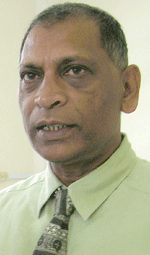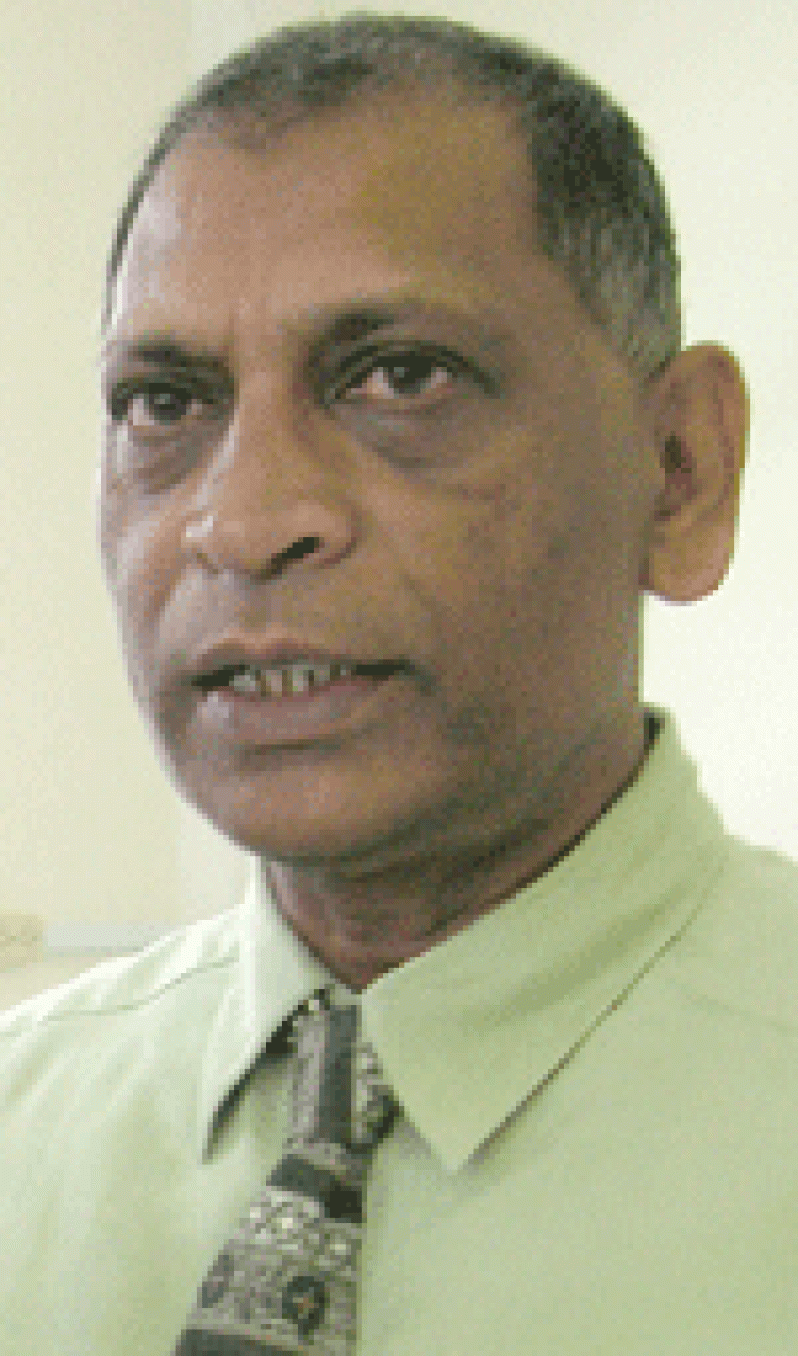THE European Parliament has voted to extend, to 2020, the sugar quota for African, Caribbean and Pacific (ACP) countries, which was previously scheduled to end in 2015.
Minister of Agriculture, Dr. Leslie Ramsammy made this disclosure during a media briefing in his ministry’s Regent Road, Georgetown boardroom, on Tuesday.
 He said, even after some extensive lobbying for an extension, the Europeans had signalled that they were not willing to grant it beyond 2016.
He said, even after some extensive lobbying for an extension, the Europeans had signalled that they were not willing to grant it beyond 2016.
But Guyana was vigorous in its lobbying and, following an ACP meeting which was chaired by Foreign Affairs Minister Carolyn Rodrigues-Birkett, the member countries agreed that the arrangement should not be halted in 2015 nor 2016 but, rather, it should continue through 2020 and even beyond.
“Guyana’s minimum position was the deadline should be 2020. There have been extensive lobbying and many in Guyana and the Caribbean and other places believed that the Guyana Government and other governments that joined in the lobby were wasting their time, that the Europeans will not extend beyond 2016,” he stated.
The Minister acknowledged that the 1973 sugar protocol was abrogated in 2005 and further abandoned in the Economic Partnership Agreement (EPA) arrangement. It also saw a 36 percent reduction of the price paid by the European Union (EU) for sugar.
Was indefinite
According to him, that 1973 protocol was indefinite as it did not have a deadline and was put in place to compensate countries such as Guyana which, for hundreds of years as a colonial country, supported the economy of developed countries.
“We, therefore, saw the 2005/2006 abrogation of the sugar protocol where the price was changed and…the 36 percent reduction as a betrayal of trust. We, therefore, argued that now the closing of the quotas or the non-extension of the quota arrangement for sugar would have been a second betrayal,” he asserted.
Ramsammy emphasised that the period of time for the industries to reorient themselves was not enough and that their mechanisation and modernisation will take a much longer time.
He added that this modernisation has to occur within a new reality, that is, of climate change.
“Because of that, we need more extensive time for our industries to have to give up the preferential European market. That is why we thought the lobbying effort must be tiring, must be vigorous and we must not give up. We, therefore, have shown, by our resoluteness, that we were correct in expending the energies we did to have the Europeans consider an extension of the quota arrangement,” he pointed out.
Ramsammy said that, in the Caribbean Region, Guyana had the most to lose if the quota came to an end, as, had it ended, it would have presented an opportunity for non-ACP countries with cheaper sugar to enter that competition.
He explained that it would have led to a lowering of the price which would have been disastrous for the sugar industries of many ACP countries.
“We believe the Europeans are reasonable people and they would understand the arguments. I am, therefore, extremely happy that, when the vote was taken, the vote was in favour of countries within the ACP and I am glad that Guyana played a vigorous role in this lobby,” he asserted.
Ramsammy recalled that, when former President Bharrat Jagdeo and the People’s Progressive Party/Civic (PPP/C) Government led a similar kind of lobby for a re-negotiation of the EPA, two things were achieved from that lobbying.
The minister said that the Europeans agreed that the EPA would not subsume the Treaty of Chaguaramas and that it would be subjected to periodic reviews.
He declared that Guyana’s global efforts at these international actions that could hurt the country must never be nominal. He stressed that they must always be vigorous because, whilst on the global stage, they could have a major impact on the country.
With the extension of the EU sugar quota, the minister observed that the sugar- producing countries in the ACP have been granted another seven years to adjust.
He maintained that it is important for these countries to make adjustments and promised to update the media about them and how the country is being impacted.
Weather patterns
Ramsammy said the sugar industry was severely affected by the changing weather patterns in 2012 and one major impact was curtailing the length of the crop.
He said, in the first crop, out of a possible 15 weeks, there were four good weeks for sugar production and in the second crop, out of a possible 20 weeks, there were seven good weeks.All the other weeks in the crops were either totally lost or restricted.
In addition, he said the weather did not only impact last year’s production, but noted that because of the conditions, the new crops of cane for 2013 would have been impacted.
“So the impact of rain is not only immediate, it is on the future. And, unfortunately, now the dry weather is affecting the industry because of cane quality. It will not destroy the cane but the quality of cane will be impacted and this is cane that is grown now which will be utilised in 2014,” Ramsammy stated.




.png)









